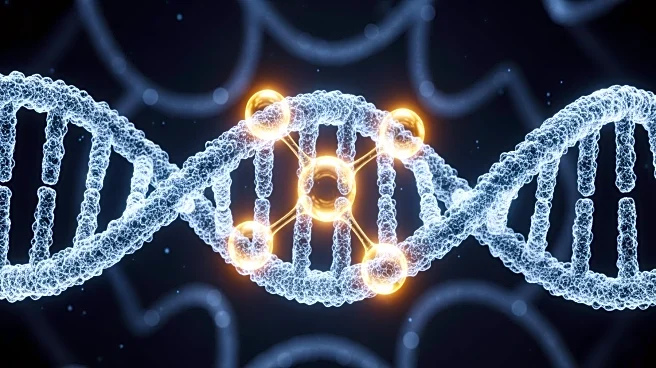What's Happening?
Recent research has highlighted the role of THOC3, a component of the THO complex, in cancer progression and prognosis. The study analyzed THOC3 expression across 33 types of cancer, finding significant differences between tumor and normal tissues in 14
types. THOC3 expression was upregulated in 13 types and downregulated in one. The study also found that THOC3 expression affects clinical staging and survival outcomes in several cancers, suggesting its potential as a prognostic biomarker. Additionally, THOC3's correlation with Tumor Mutational Burden (TMB) and Microsatellite Instability (MSI) indicates its role in predicting immunotherapy efficacy.
Why It's Important?
The identification of THOC3 as a prognostic biomarker is significant for cancer treatment strategies, particularly in personalized medicine. Its correlation with TMB and MSI suggests that THOC3 could guide immunotherapy decisions, potentially improving patient outcomes. Furthermore, THOC3's association with Homologous Recombination Deficiency (HRD) implies that it could enhance sensitivity to certain chemotherapy drugs, offering new avenues for treatment. This research underscores the importance of understanding molecular mechanisms in cancer to develop targeted therapies.
What's Next?
Future research is needed to explore the molecular mechanisms of THOC3 in cancer, which could lead to the development of new therapeutic targets. The study suggests that THOC3 could be integrated into treatment strategies combining immunotherapy and chemotherapy, particularly for cancers with high TMB, MSI, and HRD. Continued investigation into THOC3's role in immune checkpoint pathways may also pave the way for new immune checkpoint inhibitors.
Beyond the Headlines
The study highlights the potential of THOC3 in manipulating immune checkpoint pathways, offering insights into immune evasion mechanisms in cancer. This could lead to the development of more refined immunotherapeutic strategies, addressing the low clinical response rates currently observed.















